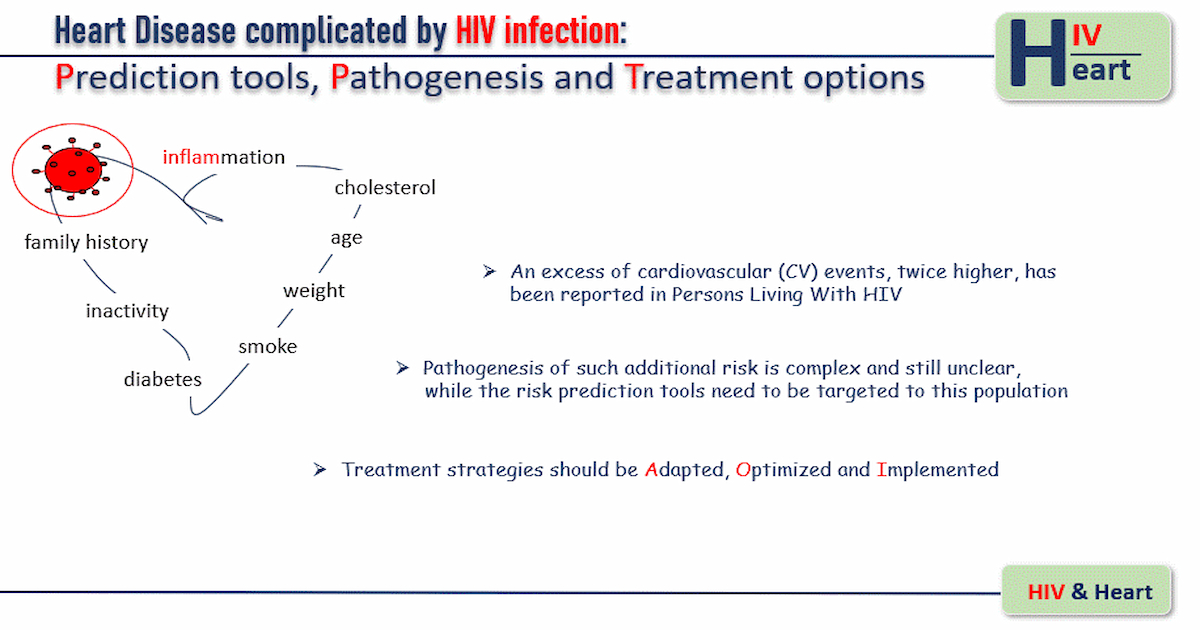Heart Disease Complicated by HIV Infection: Predictors, Diagnosis and Treatment Options
A special issue of Journal of Clinical Medicine (ISSN 2077-0383). This special issue belongs to the section "Cardiology".
Deadline for manuscript submissions: closed (20 December 2024) | Viewed by 1511

Special Issue Editor
Special Issue Information
Dear Colleagues,
Over the last two decades, following the introduction of potent high-genetic barrier regimens in the aging population, HIV medicine has progressively focused on comorbidities and age-related health issues. People living with HIV (PLWH) are disproportionally affected by cardiovascular disease (both in terms of morbidity and mortality) which is not entirely explained by the traditional risk factors, such as age, gender, smoker status, diabetes, family history, hypertension, and weight.
Several studies have addressed the additional role of HIV-related immune activation and inflammation, but many questions remain open. HIV infection is considered an independent predictor of heart disease, meaning it should be managed accordingly, although real-life data report an insufficient level of medical attention and patient compliance.
Heart disease requires multilevel interventions, more aggressive investigations, higher clinician and patient awareness, along with treatment optimization. Antiretrovirals and the potential for drug-to-drug interactions may also complicate this scenario.
More studies are needed in this population to refine the risk prediction tools, identify subclinical diseases, provide recommendations, and standardize management.
The aim of this Special Issue is to focus on the peculiarity of cardiovascular disease in PLWH, addressing the clinical issue in terms of prediction tools, pathogenesis, and treatment options.
Dr. Diego Ripamonti
Guest Editor
Manuscript Submission Information
Manuscripts should be submitted online at www.mdpi.com by registering and logging in to this website. Once you are registered, click here to go to the submission form. Manuscripts can be submitted until the deadline. All submissions that pass pre-check are peer-reviewed. Accepted papers will be published continuously in the journal (as soon as accepted) and will be listed together on the special issue website. Research articles, review articles as well as short communications are invited. For planned papers, a title and short abstract (about 250 words) can be sent to the Editorial Office for assessment.
Submitted manuscripts should not have been published previously, nor be under consideration for publication elsewhere (except conference proceedings papers). All manuscripts are thoroughly refereed through a single-blind peer-review process. A guide for authors and other relevant information for submission of manuscripts is available on the Instructions for Authors page. Journal of Clinical Medicine is an international peer-reviewed open access semimonthly journal published by MDPI.
Please visit the Instructions for Authors page before submitting a manuscript. The Article Processing Charge (APC) for publication in this open access journal is 2600 CHF (Swiss Francs). Submitted papers should be well formatted and use good English. Authors may use MDPI's English editing service prior to publication or during author revisions.
Keywords
- cardiovascular disease
- HIV infection
- HAART
- biomarkers
- coronary artery diseases
- inflammation
- arterial stiffness
Benefits of Publishing in a Special Issue
- Ease of navigation: Grouping papers by topic helps scholars navigate broad scope journals more efficiently.
- Greater discoverability: Special Issues support the reach and impact of scientific research. Articles in Special Issues are more discoverable and cited more frequently.
- Expansion of research network: Special Issues facilitate connections among authors, fostering scientific collaborations.
- External promotion: Articles in Special Issues are often promoted through the journal's social media, increasing their visibility.
- Reprint: MDPI Books provides the opportunity to republish successful Special Issues in book format, both online and in print.
Further information on MDPI's Special Issue policies can be found here.






